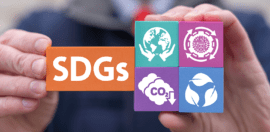Roadmap for return of soft plastics recycling

14 March 2023 at 9:38 am
Soft plastics recycling is expected to be gradually ramped up again in Australia.
The return of soft plastics recycling will not run smoothly, according to the major supermarkets tasked with the reintroduction of the program.
The Soft Plastics Taskforce, comprising retail giants Coles, Woolworths and Aldi, has released its Roadmap to Restart report detailing how Australians can begin to recycle soft plastics again following the collapse of REDcycle.
The report is described as an “interim plan” and warns that much depends on how quickly existing stockpiles can be cleared, and how soon recycling capacity can be increased.
According to the plan, the taskforce is currently looking for “viable recycling partners and models” for a new soft plastics recycling program, with domestic recycling options preferred.
In the meantime, Coles and Woolworths have assumed control of existing stockpiles of soft plastics and will keep them in storage while recycling options are determined.
The plan notes that “the supermarkets are commencing work to assess the current safety issues and condition of material for recovery”, with the two supermarket giants committing to “providing their support to save as much of this stockpiled material from landfill as possible”.
A restart of the recycling program may be impacted by the need to process the stockpiles first, the taskforce noted in the plan.
According to the plan, taskforce members expect in-store soft plastic collections to restart in certain areas in late 2023, depending on whether existing stockpiles of soft plastics can be processed.
The program would then be gradually ramped up as processing increases and expands.
Expanding the program to other areas “will be dependent on the location, capability and capacity of reprocessing infrastructure as it develops in 2024 and 2025”, the plan notes.
“This expansion could be accelerated with the assistance of state and federal governments to invest and expedite planning approvals for new domestic processing capacity. The taskforce is committed to ensuring in-store collections are only commenced when it can be confident the soft plastic will be recycled responsibly, without a high risk of disruption,” it continues.
The retailers note in the plan that the restart of the program is subject to a number of factors, including “the identification of sustainable, viable and long-term soft plastics recovery options, prioritising the best environmental outcomes”, “multiple processing channels to remove single-point failure risks which could result in a similar system-wide disruption as that experienced by REDcycle” and “whole-of-industry support” from suppliers, other retailers and e-commerce platforms.
See more: Lost without REDcycle? Here are some alternatives
A spokesperson for the taskforce said the “paramount” concern is the restoration of public trust in the soft plastic recycling industry.
“The taskforce will reintroduce soft plastic collections when it can be confident that it will be properly recycled. We owe it to consumers to get this right,” the spokesperson continued.
“The best way to accelerate nationwide access to soft plastic recycling is through continued investment in recycling facilities to bring forward existing plans to expand domestic capacity.
“We recognise that in the long-term, more soft plastic could be diverted from landfill if future schemes are more convenient for consumers and can meet soft plastic at the point where it becomes waste — the household.
“It is crucial that this opportunity to rethink Australia’s future national soft plastic recycling model is not overlooked.”
Read the roadmap online.







